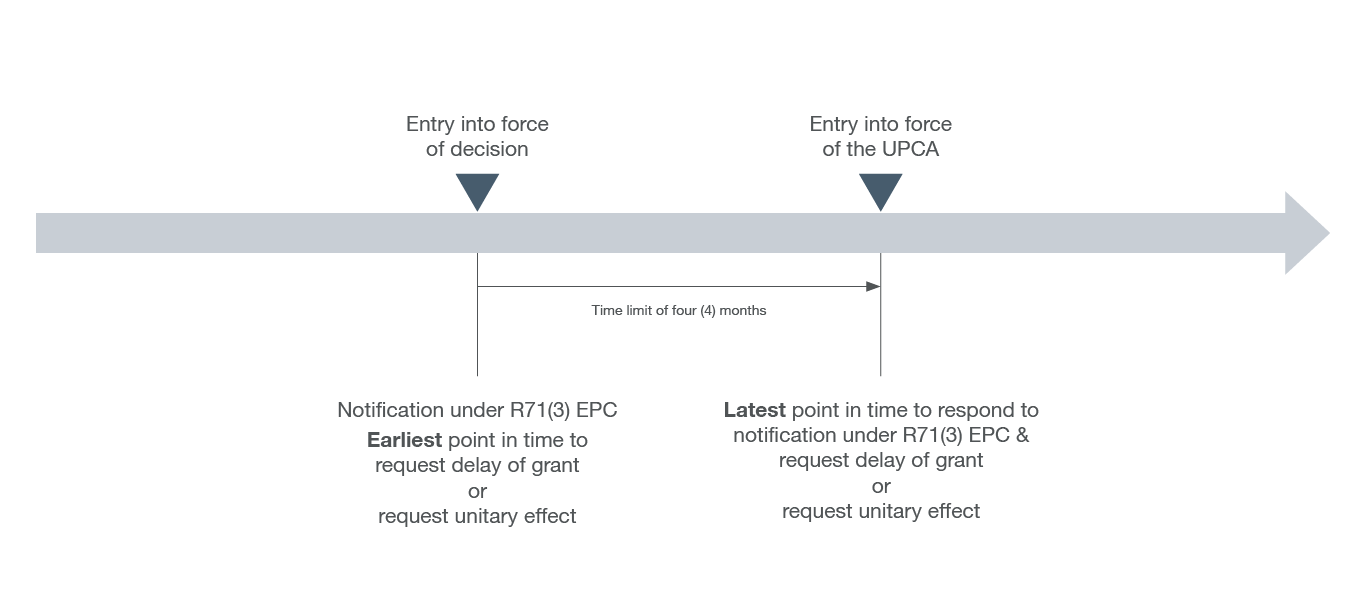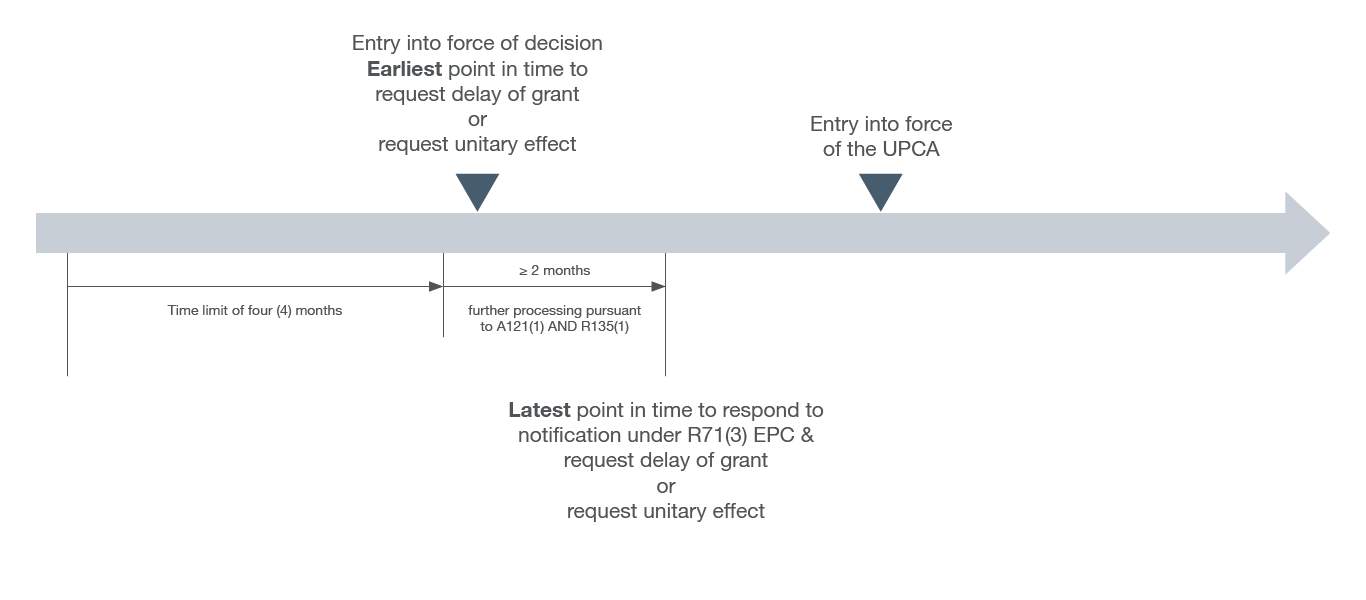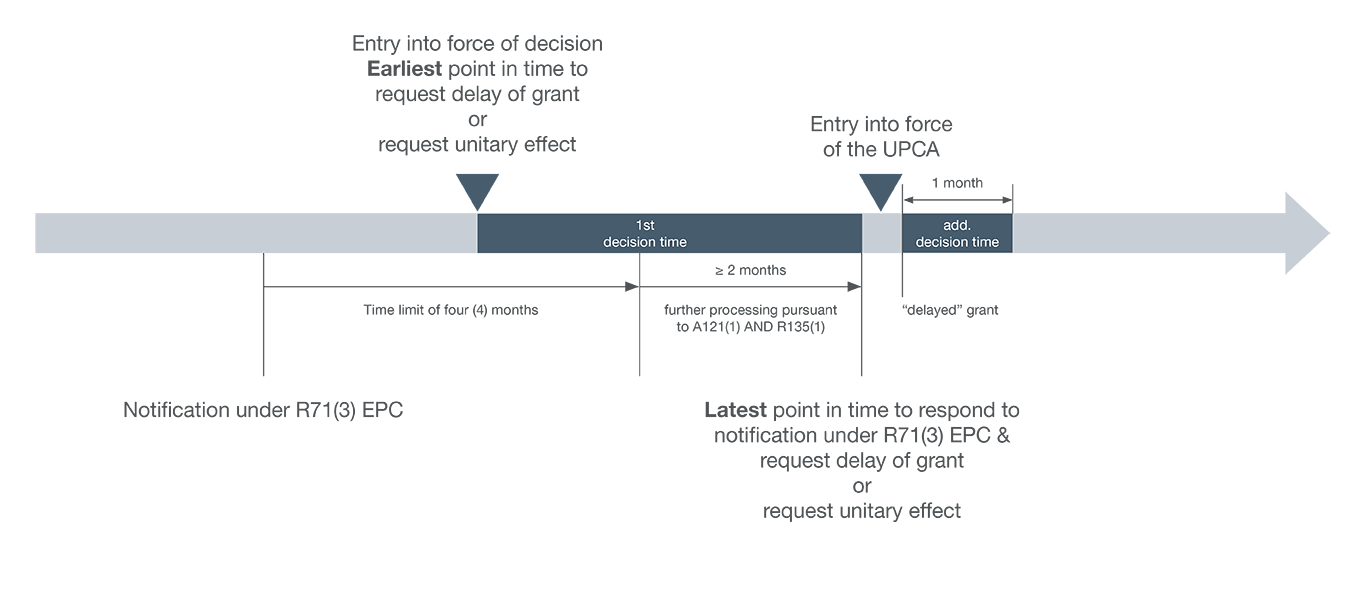Preparation of entry into force of the UPCA by the EPO – possibility to delay grant and early request for unitary effect
Headlines in this article
Related news and insights
Blog Post: 03 April 2024
European Commission opens unprecedented abuse of dominance probe in animal medicines sector
Blog Post: 28 March 2024
Publications: 13 March 2024
Surge in EU and UK private antitrust damages actions continues
Publications: 13 March 2024
Abuse of dominance enforcement declines as new forums emerge
Pursuant to Article 3 the UPCA is automatically applicable to any European Patent and/or European Patent application that is pending or issued prior to the entry into force of the UPCA.
Thereunder, a European Patent can be a “standard” European Patent or a European Patent with unitary effect (“Unitary Patent”). In general, the UPC has exclusive jurisdiction to litigation regarding Unitary Patents and European Patents under the EPC (Article 32(1) UPCA), but for a transitional period of seven years from the date of entry into force of the UPCA, the UPC does not have exclusive jurisdiction to European Patents under the EPC (Article 83(1) UPCA). In that period, national courts may also have jurisdiction to the national equivalents of European Patents and applicants may also explicitly “opt out” from the exclusive jurisdiction of the UPC to European Patents (Article 83(3) UPCA) with the effect that even after the transitional period national courts may have jurisdiction to such European Patent (national equivalents).
Therefore, applicants of European Patents have a choice to make. Either, they want to have their European Patents become “Unitary Patents” and thus exclude them from the jurisdiction of national courts to the benefit of exclusive jurisdiction of the UPC, or they want to “opt-out” to the benefit of preserving the right to litigate under the “old system”. If applicants don’t take any of these decisions, this may preserve them generally the option to assert such European Patent at a later time when needed either in the UPC or in national courts. However, such patents may be drawn into the UPC system through a nullity action filed by a third party with the UPC, or taken out of the at least exclusive jurisdiction of the UPC through actions filed by such third parties with a national Court.
This may be a difficult choice and time to make such decision may sometimes be too short for some applicants. This is because under Article 18(6) of Regulation (EU) No 1257/2012 the request of making a European Patent a Unitary Patent must be submitted within one month after publication of the mention of grant in the European Patent Bulletin (Rule 6(1) of the Rules relating to Unitary Patent Protection), once the UPCA enters into force.
If this is missed, the European Patent remains an “old European Patent” and the owner thereof is deprived of his option of making it a Unitary Patent. He may still opt-out (see above), but he is in many cases exposed to the uncertainty and also the decision of other parties for a period of at least seven years, whether his patent will be litigated under the UPC or before (any) national courts.
The decision of the President of the EPO addresses this issue. It also demonstrates the obvious intention to have as many European Patents as possible becoming Unitary Patents.
The decision establishes two specific methods that provide applicants with a certain flexibility regarding their intent to register a European Patent as a Unitary Patent (and thus becoming subject to the exclusive jurisdiction of the UPC).
For those that are already determined to have their European Patents becoming Unitary Patents, the EPO now allows (deviating from the above rule that the request may only be filed AFTER grant within one month) the early filing of a request for unitary effect before grant. This may be beneficial for those applicants/owners of European Patents that want to avoid anyone interfering with their intention between the date of grant and the actual date that their request for a Unitary Patent is registered (e.g. by a third party filing a nullity complaint before a national court in the meantime).
For those undetermined, the EPO now offers that any applicant may request the delay of the mention of grant in the European Patent Bulletin until the date of entry into force of the UPCA. Thereby the point in time to make the decision is postponed, by moving the date of grant about four months into the future.
Both requests may only be filed after the applicant has received a communication under Rule 71(3) EPC and only until the applicant has approved the text intended for grant – in response to Rule 71(3) EPC (i.e. in a time window of at max. four (4) months). Filing any of the requests together with the approval of the text intended for grant is however sufficient. The request for delay (in contrast to the early request for unitary effect) may be withdrawn at any time.
As can be seen from the figure the potential entry into force of the UPCA may interfere with filing any of the two requests in some cases. Pursuant to Article 2(1, 3) of the decision of the President of the EPO said decision (and thus the possibility to file requests) will only take effect on the date the Federal Republic of Germany deposits its instrument of ratification of the UPCA and it ceases to have effect on the date of entry into force of the UPCA. Pursuant to Article 89 UPCA the UPCA will now enter into force on the first day of the fourth month after such German deposit. Thereby the time during which the decision of the President of the EPO will actually be effective may be as short as only three months (in an extreme scenario). In an ideal scenario the time limits under Rule 71(3) EPC and the time until entry into force of the UPCA match (see Fig. 1).
Fig. 1

Fig. 2

Fig. 3

